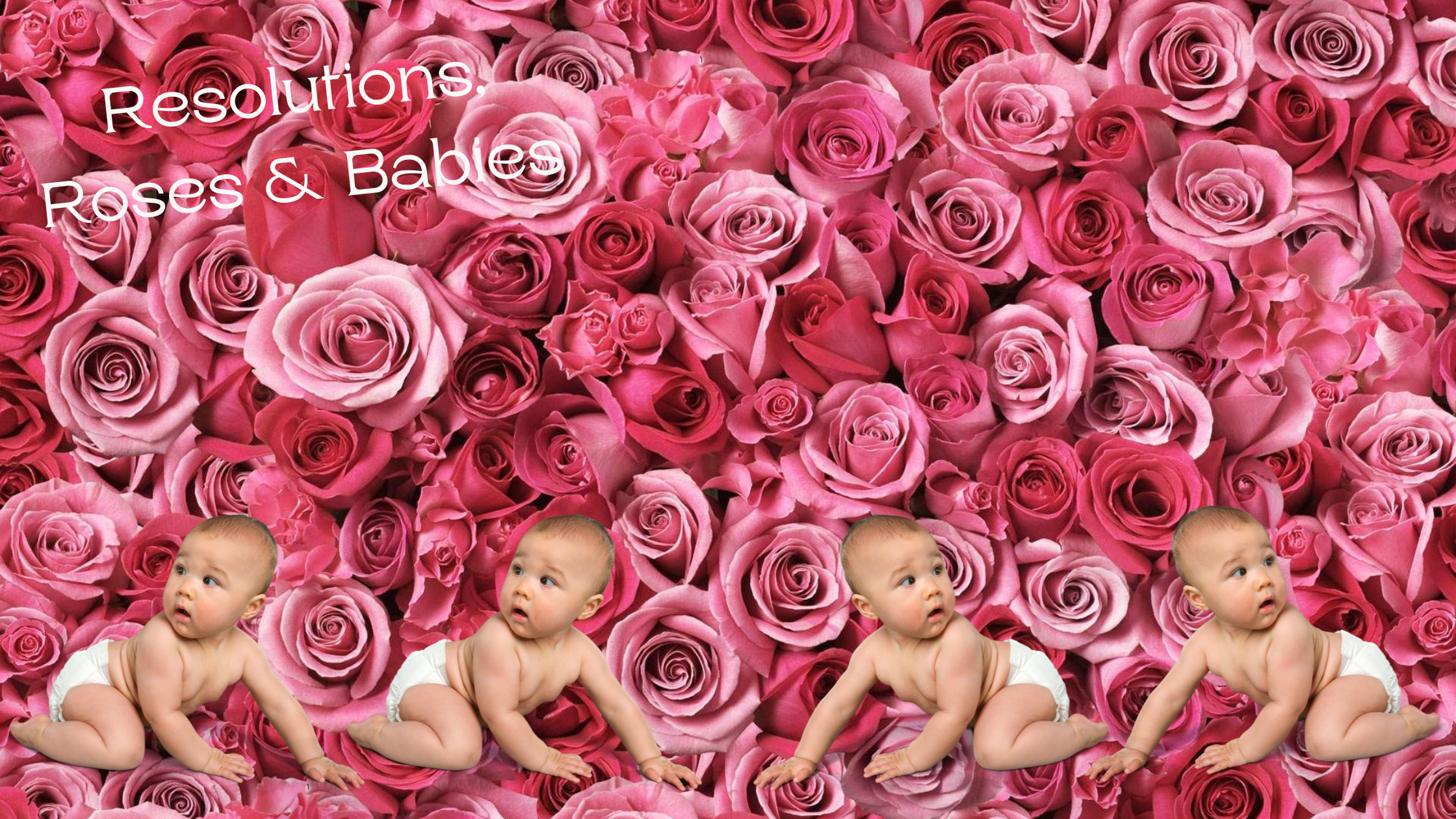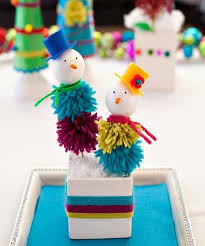Have you ever wondered why we use some of the images that we use to celebrate New Year's? Read on to learn the how and why of our New Year's History and Traditions. If you haven't thought about it, just scroll to the bottom of the article for some decorating ideas.
ANCIENT NEW YEARS CELEBRATION
The celebration of the new year is the oldest of all holidays. It was first observed in ancient Babylon about 4000 years ago. In the years around 2000 BC, the Babylonian New Year began with the first New Moon (actually the first visible crescent) after the Vernal Equinox (the first day of spring).
The beginning of spring is a logical time to start a new year. After all, it is the season of rebirth, of planting new crops, and of blossoming. January 1, on the other hand, has no astronomical or agricultural significance. It is purely arbitrary.
The Babylonian new year celebration lasted for eleven days. Each day had its own particular mode of celebration, but it is safe to say that modern New Year's Eve festivities pale in comparison.
The Romans continued to observe the new year in late March, but their calendar was continually tampered with by various emperors so the calendar soon became out of synchronization with the sun. In order to set the calendar right, the Roman senate, in 153 BC, declared January 1 to be the beginning of the new year. Tampering continued until Julius Caesar, in 46 BC, established what has come to be known as the Julian Calendar. It again established January 1 as the new year. But in order to synchronize the calendar with the sun, Caesar had to let the previous year drag on for 445 days.
HAPPY NEW YEAR AND NEW YEAR TRADITIONS
Resolutions, Roses, and a Baby?

Other traditions of the season include the making of New Year's resolutions. That tradition also dates back to the early Babylonians. Popular modern resolutions might include the promise to lose weight or quit smoking. The early Babylonian's most popular resolution was to return borrowed farm equipment.
The Tournament of Roses Parade dates back to 1886. In that year, members of the Valley Hunt Club decorated their carriages with flowers. It celebrated the ripening of the orange crop in California.
Although the Rose Bowl football game was first played as a part of the Tournament of Roses in 1902, it was replaced by Roman chariot races the following year. In 1916, the football game returned as the sports centerpiece of the festival.
The tradition of using a baby to signify the new year was begun in Greece around 600 BC. It was their tradition at that time to celebrate their god of wine, Dionysus, by parading a baby in a basket, representing the annual rebirth of that god as the spirit of fertility. Early Egyptians also used a baby as a symbol of rebirth.
Although the early Christians denounced the practice as pagan, the popularity of the baby as a symbol of rebirth forced the Church to reevaluate its position. The Church finally allowed its members to celebrate the new year with a baby, which was to symbolize the birth of the baby Jesus.
The use of an image of a baby with a New Year's banner as a symbolic representation of the new year was brought to early America by the Germans.
LUCK IN THE NEW YEAR

Traditionally, it was thought that one could affect the luck they would have throughout the coming year by what they did or eat on the first day of the year. For that reason, it has become common for folks to celebrate the first few minutes of a brand new year in the company of family and friends. Parties often last into the middle of the night after the ringing in of a new year. It was once believed that the first visitor on New Year's Day would bring either good luck or bad luck for the rest of the year. It was particularly lucky if that visitor happened to be a tall dark-haired man.
Images & Foods
Traditional New Year foods are also thought to bring luck. Many cultures believe that anything in the shape of a ring is good luck because it symbolizes "coming full circle," completing a year's cycle. For that reason, the Dutch believe that eating donuts on New Year's Day will bring good fortune.
Many parts of the U.S. celebrate the new year by consuming black-eyed peas. These legumes are typically accompanied by either hog jowls or ham. Black-eyed peas and other legumes have been considered good luck in many cultures. The hog, and thus its meat, is considered lucky because it symbolizes prosperity. Cabbage is another "good luck" vegetable that is consumed on New Year's Day by many. Cabbage leaves are also considered a sign of prosperity, being representative of paper currency. In some regions, rice is a lucky food that is eaten on New Year's Day.
My parents always prepared; black-eye peas, baked macaroni n' cheese, greens, cornbread, ham, chitlins (pig intestines), and pigs feet for our New Year's meal. My dad would prepare the chitlins and pigs' feet. My mom didn't want to prepare them. I don't blame her, they stink to the high heavens. I won't eat them. I would eat the ham.
What are some of your family traditions for New Year's Eve or Day? Did you ever wonder why your family used some of the images, decor or foods to celebrate New Year's? Happy New Year and enjoy your New Year's Traditions
NEW YEAR'S EVE PARTY DECOR





Have you been looking for ways to include your family's culture or traditions in your celebration?
Are you finding it difficult to effectively plan your event, interview event pros, design the decor and create a well organized and thoughtful wedding or social event?
If you answered yes to ANY of the questions above, contact me.
I can help you create a seamless, well planned and organized beautifully designed space, including your family traditions and cultural touches all while giving you time, space and peace of mind to fully engage, enjoy, create and capture memories to cherish for yourself and future generations.



